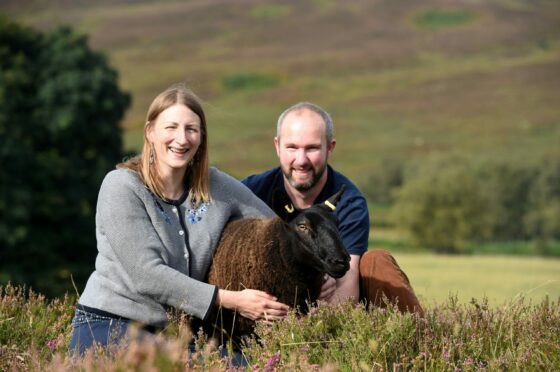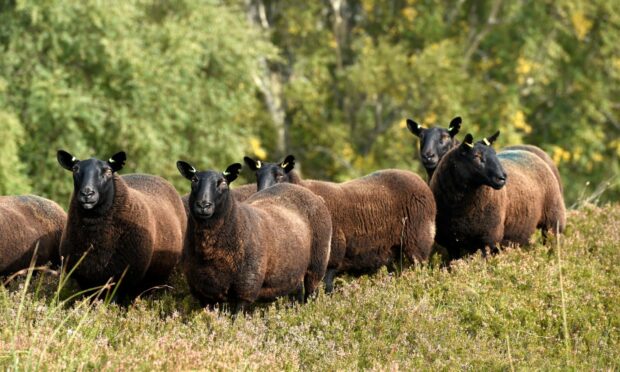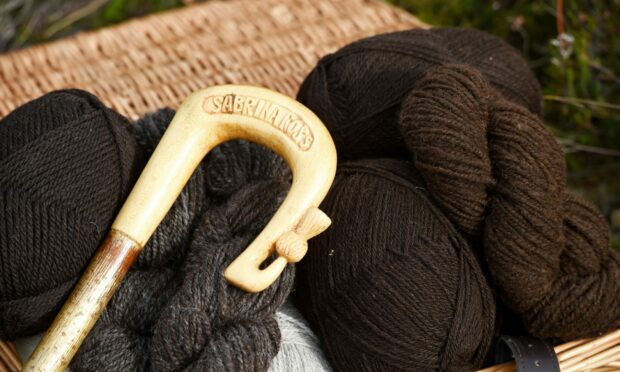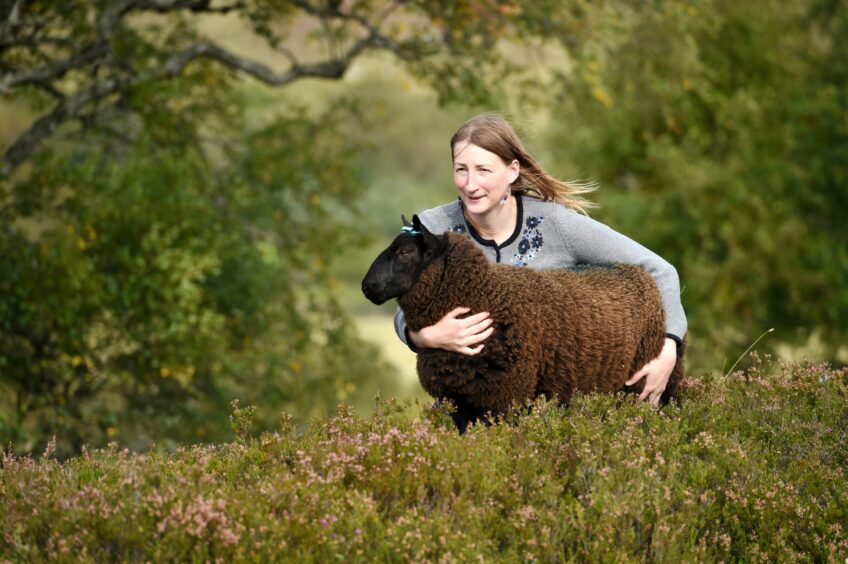North Country Cheviots are a familiar sight on farms and crofts across the north of Scotland.
And for one Sutherland farming couple, this extends to Cheviots of the black variety.
George and Sabrina Ross are the fifth generation of crofters to work the land at Heatherlea Croft, near Ardgay.
The croft was assigned to George by his late father Robin, and the couple now run a 650-ewe flock of standard white Lairg-type hill North Country Cheviots and a separate 50-ewe flock of black Cheviots.
“My father reclaimed and improved much of the land, allowing our family to carry a far larger flock than before,” said Mr Ross.
“And being situated well up a strath and on a north-facing slope, we don’t get the sun in the deepest of winter so the sheep need to be well insulated – it was minus 20 degrees celsius in February this year.”
The couple sells all lambs from the white flock through Lairg and Dingwall marts, with the majority of stock from the black flock sold privately.
“Selling privately and at the marts is a good combination for us,” said Mr Ross.
“The marts are vital for the rural communities, attracting buyers from across the UK, allowing a competitive, transparent and true market value to be given for the stock and provide an attraction for even the shyest of glen huggers to meet friends, aiding mental health wellbeing for the crofting community.”
Mrs Ross, who is a qualified vet and works as an agricultural officer, said breeding sheep with good coats is especially important for the couple as they have diversified the croft enterprise by running a special business –Heatherlea Black Cheviot – selling wool and woollen products.
She said: “Our black Cheviots form the basis of our wool business.
“With wool prices this last two years at an all-time low, we were looking into more reliable ways to make use of the fleece.”
Mrs Ross added: “The Cheviot wool is soft and durable – a very rare combination – and it is becoming increasingly sought after by hand spinners, knitters, crocheters, weavers and fibre artists.
“Even experienced wool folk are caught out by the qualities of Cheviot wool.”
The couple said although the black Cheviot is not a recognised breed, it is growing in popularity.
Mr Ross said: “It is a Scottish superstition to keep a black ewe or two with your white flock for good luck.
“There are very few black Cheviot flocks around, keeping the gene pool small, so it’s great to see such a keenness to start up little flocks.”
Mrs Ross added: “A lot of people are not aware that the base colours of sheep are only black or brown and the white is a pattern.
“Black Cheviots are Cheviots with a solid black base colour.”
And although the couple have developed a specific black flock, Mrs Ross says they would never breed sheep for the colour of their wool alone.
She said: “For us, animal correctness and health is put to the foreground.
“Choosing ewe lamb replacements and tup selection also includes finding animals with a tight crimp which are free of kemp.
“Our stock need to keep the cold and rain out, and be conserving energy so they are more efficient.”
All the wool sold from Heatherlea is clipped and sorted by the couple, with some handspun and the remainder sent to a UK mill for machine spinning.
Mr Ross said: “Sabrina’s woollen skeins go all over the world, even into Australia and New Zealand, and we are in talks with shepherds in the US about getting (black Cheviot) semen straws across the pond.”
Going forward the couple plan to expand the wool business and eventually increase sheep numbers.
Mr Ross said: “If we can increase the size of the white flock then we hope to train up a crofter wannabe from the local community, and in time we may even have a day off.”



